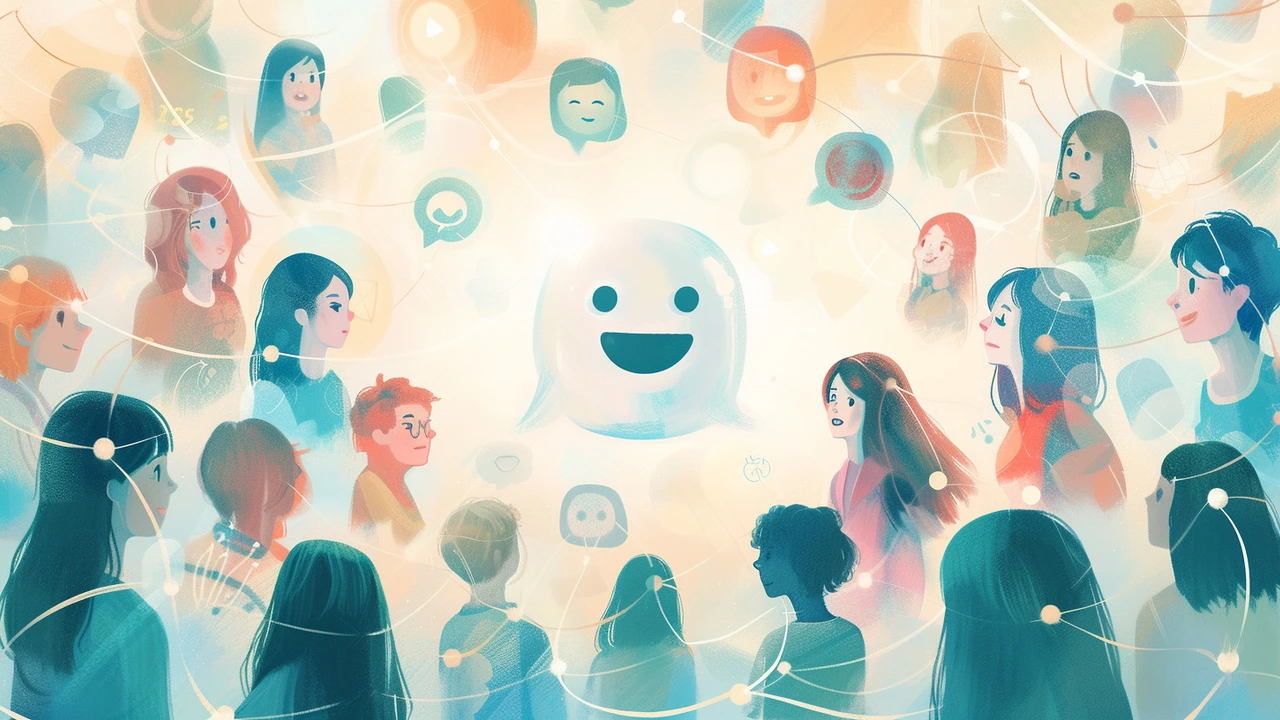
Understanding ChatGPT in Facebook Messenger
The realm of social media is continually evolving, and artificial intelligence plays a pivotal role in this progression. Recently, Facebook Messenger has seen the rise of a new participant in conversations: ChatGPT, a variant of the GPT (Generative Pretrained Transformer) language models developed by OpenAI. This AI chatbot has been integrated into Messenger, offering users an interactive, intelligent, and adaptable partner for dialogue.
Imagine typing a message and receiving an instant reply that feels incredibly human-like. That's what ChatGPT offers. Its ability to understand context, remember past interactions, and generate appropriate responses is almost magical. It analyzes the content of a chat in real-time, offering suggestions, answering questions, and even engaging in light-hearted banter. The flexibility and natural language processing capabilities of ChatGPT make it an invaluable asset to the Messenger experience, reshaping how we interact with technology.
But how exactly does ChatGPT integrate into Messenger? Through seamless augmentation of the chat interface, users can enable the AI to participate in their conversations. Depending on the settings, ChatGPT can either work autonomously, replying to messages without user intervention, or it can suggest responses that users can choose to send. This customization allows for a tailored experience that can accommodate preferences ranging from full automation to subtle assistance.
The incorporation of ChatGPT into Messenger is not merely a novelty; it has significant implications for the platform. Users can multitask more efficiently, businesses can offer real-time customer service, and the overall quality and speed of communication have the potential to improve exponentially. What's more, ChatGPT learns from each interaction, continually refining its conversational skills.
The Impact of ChatGPT on User Interactions
Social interactions on Facebook Messenger with ChatGPT are notably different. Friends can now challenge the AI to games, add it to group chats for an additional layer of entertainment, or use it as a prompt for new topics of discussion. In a more practical sense, ChatGPT can assist with schedule coordination, event planning, or even provide language translation services.
For professionals and businesses, the possibilities are even more compelling. By acting as the first point of contact, ChatGPT can triage user inquiries, providing immediate responses to frequently asked questions and forwarding more complex issues to human agents. This could lead to increased customer satisfaction due to lower wait times and a 24/7 availability that was previously unthinkable for many small businesses.
However, the impact isn't purely positive. There are legitimate concerns around data privacy and the potential for misunderstandings or propagation of misinformation. Facebook and OpenAI must navigate these issues delicately, providing transparent data usage policies and continuously improving the AI to avoid pitfalls. But when used responsibly, ChatGPT's role in Messenger signifies an intriguing shift towards AI-augmented social interactions, suggesting a future where human-AI conversations are the norm rather than the exception.
Maximizing Your ChatGPT Experience on Messenger
To truly harness the capabilities of ChatGPT within Facebook Messenger, there are several tips and tricks one can employ. Firstly, being specific with requests allows the AI to provide more accurate responses. The precise language helps ChatGPT to pinpoint your expectations and tailor its replies. Secondly, avoid ambiguous language or slang that might confuse the AI. Although ChatGPT is sophisticated, it can misinterpret complex idioms or culturally specific references which could lead to less satisfying interactions.
Sometimes you might find that ChatGPT's responses aren't quite right. When this happens, providing feedback is key. Whether it's a thumbs-up for a helpful reply or a report of an unsatisfactory one, user input is fundamental to the AI's learning process. Additionally, exploring the various settings and customizations available within Messenger can enhance the experience. You can adjust how proactive ChatGPT is, manage notification preferences, and set limits on what conversations the AI can access.
For the more privacy-conscious users, it's also essential to understand and utilize the privacy settings and controls provided. Be aware of what data you're granting access to and regularly review your settings to ensure they align with your comfort levels concerning data sharing and AI interaction.
The Future of AI in Social Media Conversations
ChatGPT's adoption on Facebook Messenger is just the beginning. As AI technology advances, we can anticipate more nuanced and sophisticated AI chatbots across various social platforms. These AI systems could lead to more personalized content, smarter recommendations, and further innovations in virtual reality and augmented reality spaces.
The ongoing development of GPT models promises continued improvements in language understanding, making future versions of ChatGPT even more intuitive. This could eventually result in AI companions that understand emotional nuances, convey empathy, and provide more substantial support in our daily digital interactions.
Privacy and ethical considerations will stay at the forefront of this technological advancement. Balancing the convenience and benefits of AI with the need to protect users' personal information will be an ongoing challenge. As we proceed into this AI-enhanced social media landscape, it'll be crucial to stay informed and involved in the conversation about how these tools are developed and implemented.